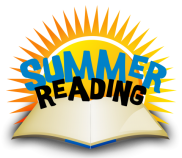April is Poetry Month, and my students learned about Haiku– a Japanese form of poetry. Traditionally, Haiku poetry is about the beauty of nature, but it can be about anything that interests the writer. Haiku is very concise – three lines, and 17 syllables: 5- 7-5. Word choice is important because the writer is attempting to convey a feeling in very few words. My students had fun creating poems about topics important to them. I also shared
Haiku poems from children’s authors who have written their books entirely in Haiku.
Haiku Poetry Online Resources:
Haiku Starter from ReadWriteThink: http://www.readwritethink.org/files/resources/printouts/30697_haiku.pdf
Haiku Poetry Generator: http://www.readwritethink.org/classroom-resources/student-interactives/haiku-poem-interactive-31074.html
Books:
Guyku – A Year of Haiku for Boys by Bob Raczka & illustrated by Peter H. Reynolds
Guyku website chock full of resources: http://hmhbooks.com/guyku/
Dogku by Andrew Clements & illustrated by Tim Bowers
A tale in haiku
of one adorable dog.
Let’s find him a home.
Teachingbook.net has a nice assortment of resources for this book: https://www.teachingbooks.net/tb.cgi?a=1&tid=10530
Cricket Never Does – A Collection of Haiku and Tanka Poems by Myra Cohn Livingston & illustrated by Kees de Kiefte
Poem in Your Pocket Day is at the end of April, and each year I encourage my students to pull a poem from a pocket (or two or three) and share the poems with others – staff, other students, and their parents, too.
 Our library makerspace was explored and enjoyed by all students at every grade level. Makerspaces are do-it-yourself spaces where students can gather to create, invent, and learn. Makerspace activities are STEM or STEAM related (Science-Technology-Engineering-Art-Mathematics related. I am pleased to say that Educational Systems Credit Union has been a strong supporter of our makerspace, and has donated funds to help support it.
Our library makerspace was explored and enjoyed by all students at every grade level. Makerspaces are do-it-yourself spaces where students can gather to create, invent, and learn. Makerspace activities are STEM or STEAM related (Science-Technology-Engineering-Art-Mathematics related. I am pleased to say that Educational Systems Credit Union has been a strong supporter of our makerspace, and has donated funds to help support it.
The Black-Eyed Susan Book Award is sponsored by the Maryland Association of School Librarians. The purpose of this award program is to promote life-long reading habits by encouraging students to read and enjoy quality contemporary literature that broadens understanding of the human experience. This year I encouraged students in grades 3-5 to participate in the Black-Eyed Susan Book Award Challenge to see if they could read
habits by encouraging students to read and enjoy quality contemporary literature that broadens understanding of the human experience. This year I encouraged students in grades 3-5 to participate in the Black-Eyed Susan Book Award Challenge to see if they could read
more 2016-17 Black-Eyed Susan book titles than me. About twenty students took that challenge, and many read almost as many as I did, a couple tied, and one read more than I did.
Another reading challenge was from The Library of Congress National Ambassador for Young People’s Literature – Gene Luen Yang. His Reading without Walls book challenge  encouraged students to read something different than they’re used to reading to gain another perspective and break down the walls, brick by brick, that separate us.
encouraged students to read something different than they’re used to reading to gain another perspective and break down the walls, brick by brick, that separate us.
Because of these two challenges, students were able to enjoy many wonderful books that they might not have read otherwise – and that is a great thing, indeed!
 I encourage you and your children to read together this summer – it is one of the best activities your kids can do to prevent the loss of reading progress (sometimes called “summer slide”).
I encourage you and your children to read together this summer – it is one of the best activities your kids can do to prevent the loss of reading progress (sometimes called “summer slide”).

If you are in Montgomery County, consider signing up your child for the Montgomery County Public Libraries summer read and learn program – Build a Better World – here: http://montgomerycountymd.libguides.com/kids – Public libraries around the nation provide summer reading opportunities to youth and adults. Check them out!
In addition, check out the resources on Reading Rockets website here: http://www.readingrockets.org/calendar/summer
Here are a few summer reading tips from Reading Rockets website:
1. Read aloud together with your child every day.
Make it fun by reading outdoors on the front steps, patio, at the beach or park. Also, let your children read to you. For younger children, point out the relationship between words and sounds.
2. Set a good example!
Parents must be willing to model behavior for their children. Keep lots of reading material around the house.
Turn off the TV and have each person read his or her book, including mom and dad.
3. Read the same book your child is reading and discuss it.
This is the way to develop habits of the mind and build capacity for thought and insight.
4. Let kids choose what they want to read, and don’t turn your nose up at popular fiction.
It will only discourage the reading habit.
5. Buy books on tape, especially for a child with a learning disability.
Listen to them in the car, or turn off the TV and have the family listen to them together.
6. Take your children to the library regularly.
Most libraries sponsor summer reading clubs with easy-to-reach goals for preschool and school-age children. Check the library calendar for special summer reading activities and events. Libraries also provide age appropriate lists for summer reading.
For more information, please visit: http://www.readingrockets.org/article/summer-reading-tips-parents.
Happy Summer Reading, everyone!